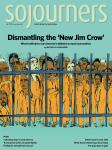YOU DON’T HAVE to be an environmentalist to wonder about technology. Will it be our great savior or another thorn in the flesh, another opportunity to hear Thoreau’s lament about the tendency of humans to “become the tools of their tools”?
This excellent collection of prayers and worship materials, From the Psalms to the Cloud, helps us understand the tool of technology. It is a very green book while also being useful. It is green because it gives us a way out of the totalitarian world of the market and into a world that we make with words.
Just about everybody is on the other side of the “time famine” and the “trust famine” and deep into digital and connectivity overload. By time famine I mean the pervasive sense that there is not enough time to do what we want, so subjugated is our time to technology, forms, and robotic requests for information. By trust famine I mean all that time we spend worrying about time and wondering if somebody else is in charge. Are we in charge of our tools and our time or are our tools and time in charge of us?
In this optimistic book, the prophets arrive. Mankin and Tirabassi ask the right question: Can a technology devoted to advertising be useful to spirituality? They answer with a careful yes, taking us on the long road from the Psalms to Twitter, by way of “vintage wine in vintage wineskins, uncorked.” These two writers gather the wisdom of dozens of beautiful writers of prayers and liturgies and show us a way to go deep digitally. Whether they are praying for energy that will “deeply change all of our clocks,” or for the return of the time when churches giving sanctuary for immigrants will become again “dusty places with pews,” or in any of John Dannon’s exquisite doxologies for the natural and ecclesiastical seasons, or encouraging us to “spend a day saying nothing that doesn’t need saying.” The prayer topics move through addiction to pregnancy to a ritual for quitting a job. What a great ask this is for those confused or overdone with technology: We pray “for a trap door when we hit rock bottom.”
Because this is a book of piety and prayer, it contrasts well to the multiple volumes of doom on the shelves. Contrast it to C.A. Bowers’ The False Promises of the Digital Revolution, which argues that there is nothing culturally neutral about technology. It reinforces our sense of progress as a cultural value, which is ecologically dangerous, especially if repeated around the world as though it was right for everyone to over-consume. Bowers also laments that technology substitutes data for ancient forms of wisdom. From the Psalms to the Cloudis a wisdom book about technology, helping to challenge the culture of data.
Nothing can be as green as worshipping. We move off the road of consumption into another time and space. Nothing can be as green as technology, which keeps us out of our cars and connected virtually. Putting worshipping and technology together, carefully, is a great idea. Adding the theological training course is a mighty work. Thank you, authors: You deeply encourage me on the road to prayer. I am less the tool of my tools after reading your wisdom.

Got something to say about what you're reading? We value your feedback!